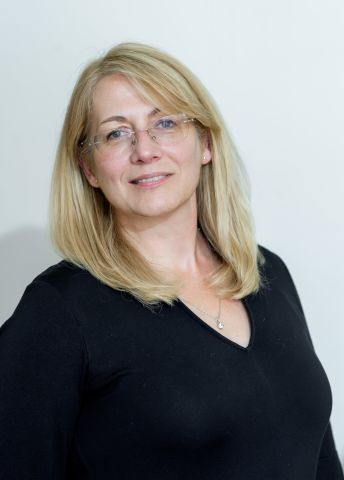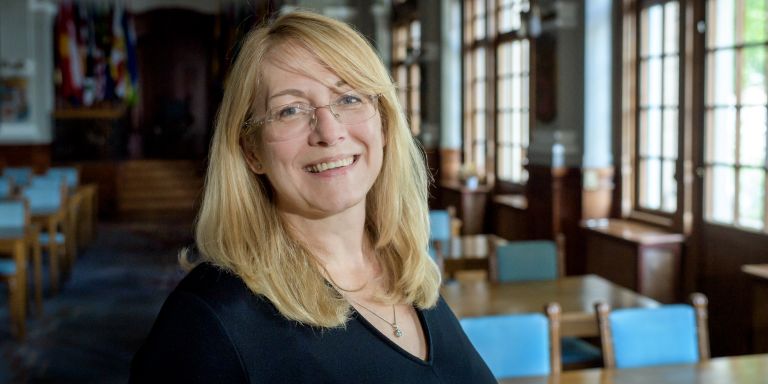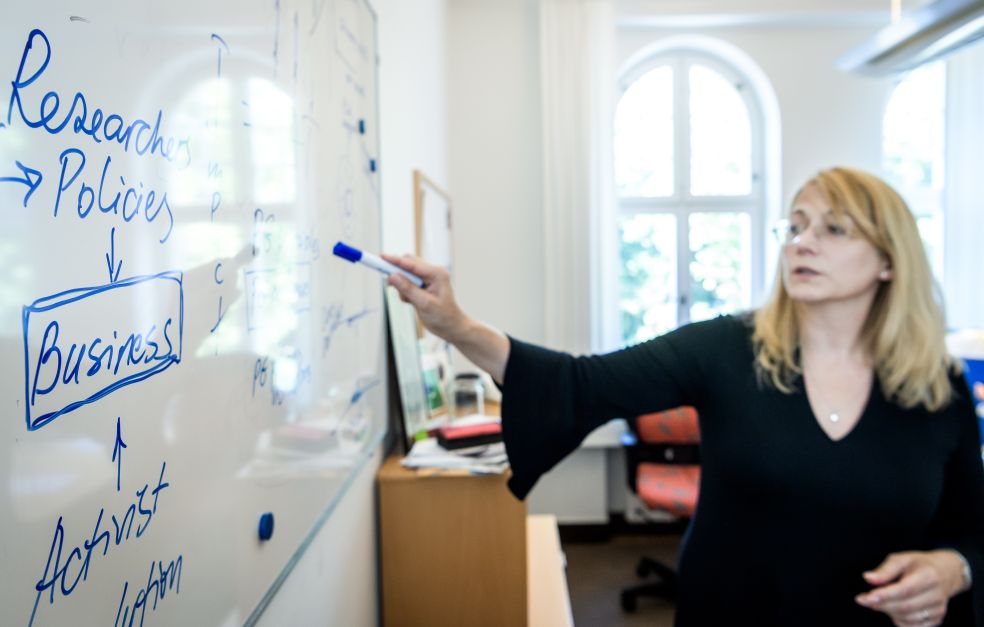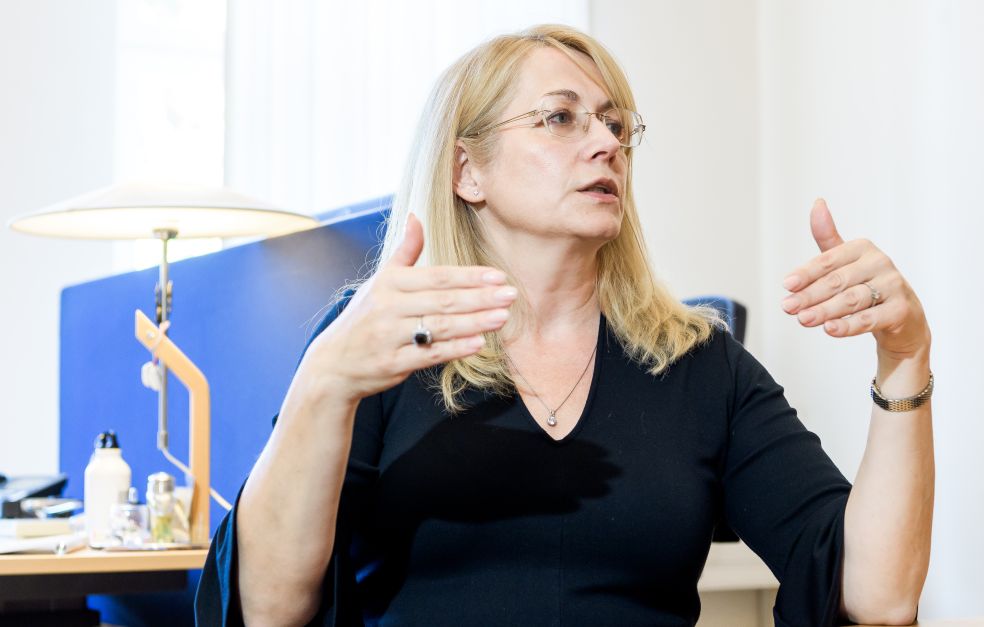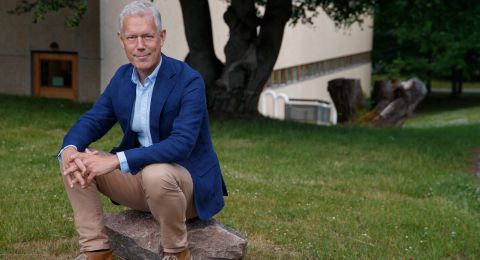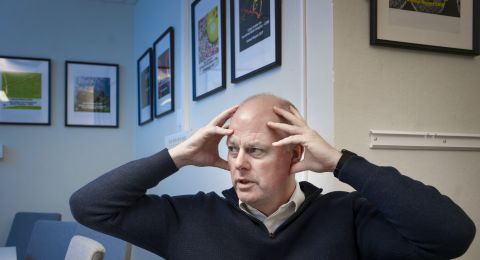For a long time, economic growth has been portrayed as a necessity for prosperity. Now, that perception is being questioned. Oksana Mont wants to examine how commercial businesses and non-commercial organizations could function in a world without growth.
Oksana Mont
Professor of Sustainable Consumption Governance
Wallenberg Scholar
University:
Lund University
Research Area:
Design, application, and evaluation of strategies and tools for sustainable consumption governance
Global economic growth has not only increased the standard of living but also led to environmental degradation and unevenly distributed prosperity. We need to find alternative ways to build our economy, says Oksana Mont, professor of sustainable consumption governance at the International Institute for Industrial Environmental Economics (IIIEE) at Lund University. As a Wallenberg Scholar, she will study how companies can function in a world without growth, or rather after growth.
“Degrowth does not sound very appealing, and it only represents a phase in economic development. Post-growth might be a better term.”
The growth-dependent system has always been unstable. Growth has been followed by stagnation and repeated collapses that have hit people hard.
“What we have is not calm and smooth; it is shaky. Is it possible instead to right-size the economy in a planned manner to fit within planetary boundaries and find a stable position? Post-growth does not mean that the economy cannot grow in any sense at all, but rather that it should be able to secure a decent standard of living for everyone regardless of whether the economy grows or not,” says Oksana Mont.
She believes a new way of thinking is needed, a kind of new business ethics. The goal may not have to be maximizing profit at any cost – which, in any case, only benefits a few.
Entrepreneurs’ various reasons for opting out of large profits
She is now planning a research project in three parts. The first part is to establish the theoretical principals underlying post-growth; the second part addresses the practical implications of this for enterprises. Mont wants to explore this together with companies in Sweden and abroad, particularly those already working in a post-growth manner. The term “sufficiency business” is sometimes used as a business model where “enough” is the guiding principle. Entrepreneurs asked why they have opted out of profit maximization or operational growth have given varying explanations. Some see it as necessary to adapt economic activity to the planet’s boundaries. Others simply want a better work-life balance or do not wish to borrow money from external investors.
“If you bring in capital, your values are no longer in control, but the investors’ are. This raises a fundamental question: What is the purpose of the company? Does it exist solely to generate profit for investors and owners, at the expense of the environment and labor, or does it also exist to contribute to society?”
A new openness among politicians
The third part of the project involves examining what policies are needed for businesses to thrive without growth. Mont points out that fifteen years ago politicians were very reluctant to discuss this. It was seen as completely impossible to talk about reduced growth and the need for changed consumption and lifestyle. But this has changed.
In her research, she will study a network of countries called the Wego countries (Wellbeing Economy Governments). Politicians in this network discuss how to shape policies for wellbeing without constant economic growth as the goal. These countries include Finland, Iceland, Wales, Scotland, Canada, and New Zealand. Mont will investigate whether “sufficiency businesses” in the Wego countries are influenced by politicians’ efforts and find out what kind of support businesses may need from policymakers.
Welfare as a goal in itself
After receiving a master’s in biology and chemistry, Mont came from Ukraine to Lund in the early 1990s. At IIIEE, she got another master’s in environmental management and policy, then she completed a PhD, and in 2010 became Sweden’s first professor in sustainable consumption and production.
“I find it incredibly fun to research and be involved in education. It is fantastic to discuss solutions with the next generations, formulate new research questions, and search for answers. Working in various international networks gives me the opportunity to develop, gain insights into different parts of society, and also influence it. I feel so privileged to have such a job – to see the tools and ideas we develop become part of new policies or used by companies and organizations.”
Today, we tend to try to monetize everything. But if the economy no longer grows, how can we still maintain prosperity and the welfare state?
Over the next five years, Mont aims to create a database of companies that operate independently of a growth mentality, outlining the challenges they face. She also wants to develop recommendations for politicians, thereby sowing the seeds for a new way of thinking. She argues that Gross Domestic Product (GDP) has been used as a measure of an economy’s success for too long. Even when the concept was developed, its creator warned that it could not be used as a general indicator of how an economy functions. Yet, that is exactly what has happened.
“Wars increase GDP, so does crime prevention – so it is not the best measure one can imagine. We need to shift focus and make wellbeing a goal in itself. I am really looking forward to starting the Wallenberg project. It is about one of the biggest challenges of our time.”
Text Lisa Kirsebom
Photo Kennet Ruona
